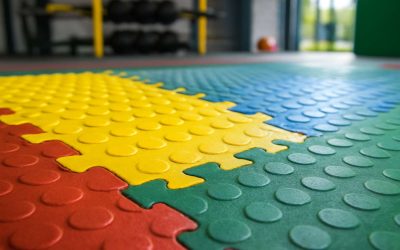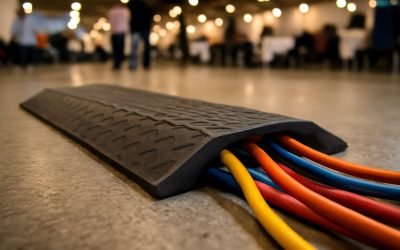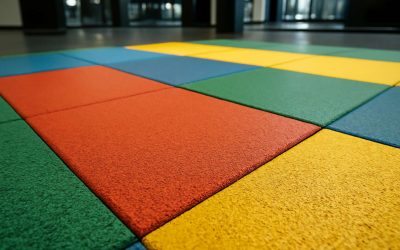
Rubber is one of the most durable flooring materials on the market. It’s also available in a wide range of colors, textures, and thicknesses, making it an ideal option for many different applications. Whether you need a durable floor mat for a commercial application, an exercise area in your home, or even an indoor play area for the kids, a rubber tile is an excellent option. These mats are often made from recycled rubber products and can contribute LEED points to a construction project.
Most manufacturers of rubber floor tiles began as companies that produced protective floor mats for industrial settings, used to protect workers from leg and back strain. Since then, they have expanded their product line to include rubber tiles that are suitable for residential use. These types of products usually feature a textured surface that maximizes traction and offers shock absorption. In addition, they typically have a fire retardant coating.
Aside from their durability and shock absorption, these products offer a number of other benefits. They are generally easy to clean and maintain, and they can help cut down on noise from heavy equipment. They are also resistant to moisture and mold growth, making them a good choice for wet environments like basements or bathrooms. They can also be installed on a variety of surfaces, including concrete, plywood, hardwood, and ceramic or porcelain tiles.
Some rubber tiles have interlocking edges for an easy installation process, which can make them a great choice for DIYers. Others require the use of carpet tape or no glue at all during the installation process, which can help reduce the amount of toxic chemicals released into the environment.
There are two main categories of rubber floor tiles: revulcanized and non-vulcanized. Non-vulcanized tiles are much more common than revulcanized ones. They are still very easy to maintain, but they do not have the same level of resiliency as vulcanized rubber. They are also lighter and less dense. Nonetheless, they’re an excellent choice for the budget-minded consumer.
For a more premium option, there are virgin rubber floor tiles. These products are guaranteed to be free from additives and latex, making them a safe choice for sensitive individuals. They are also available in a wide range of colors and can be customized to match specific color schemes. In addition, they can be purchased with a confetti-like appearance or in solid color options.
One final consideration when choosing a rubber flooring tile is its cost. The price of these tiles varies according to the thickness and quality of the material. Additionally, the size of the space in which they’ll be installed will impact how many tiles are needed – and subsequently the overall cost of the project. When comparing the cost of rubber tiles to the cost of similar flooring made from other materials, such as vinyl, you may be pleasantly surprised at how affordable this type of flooring is.



0 Comments